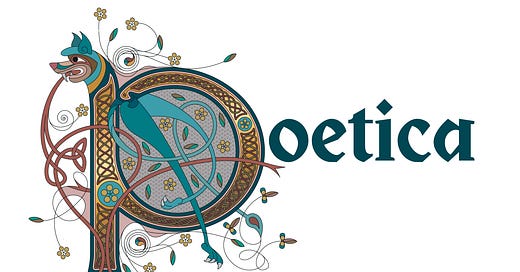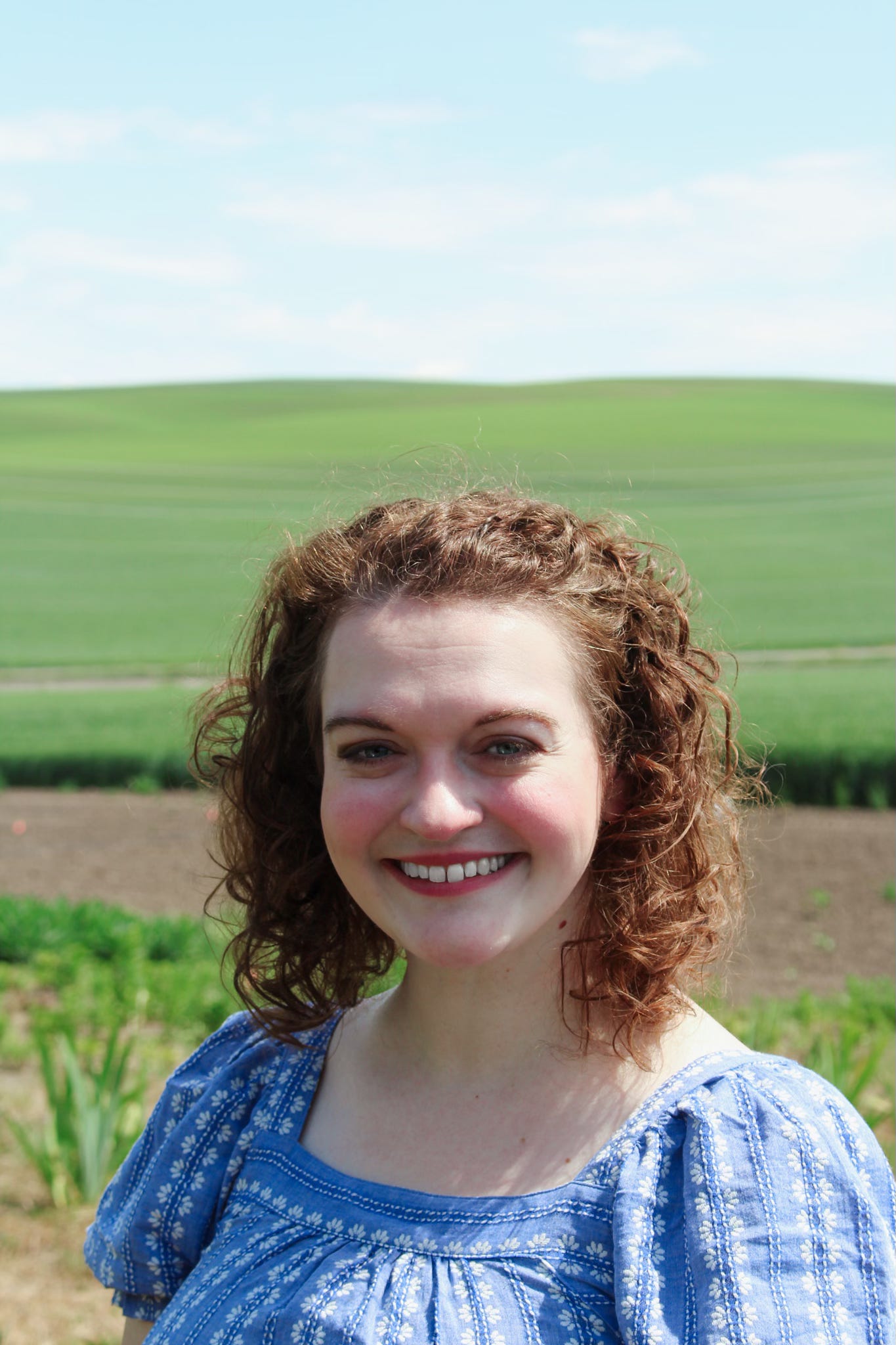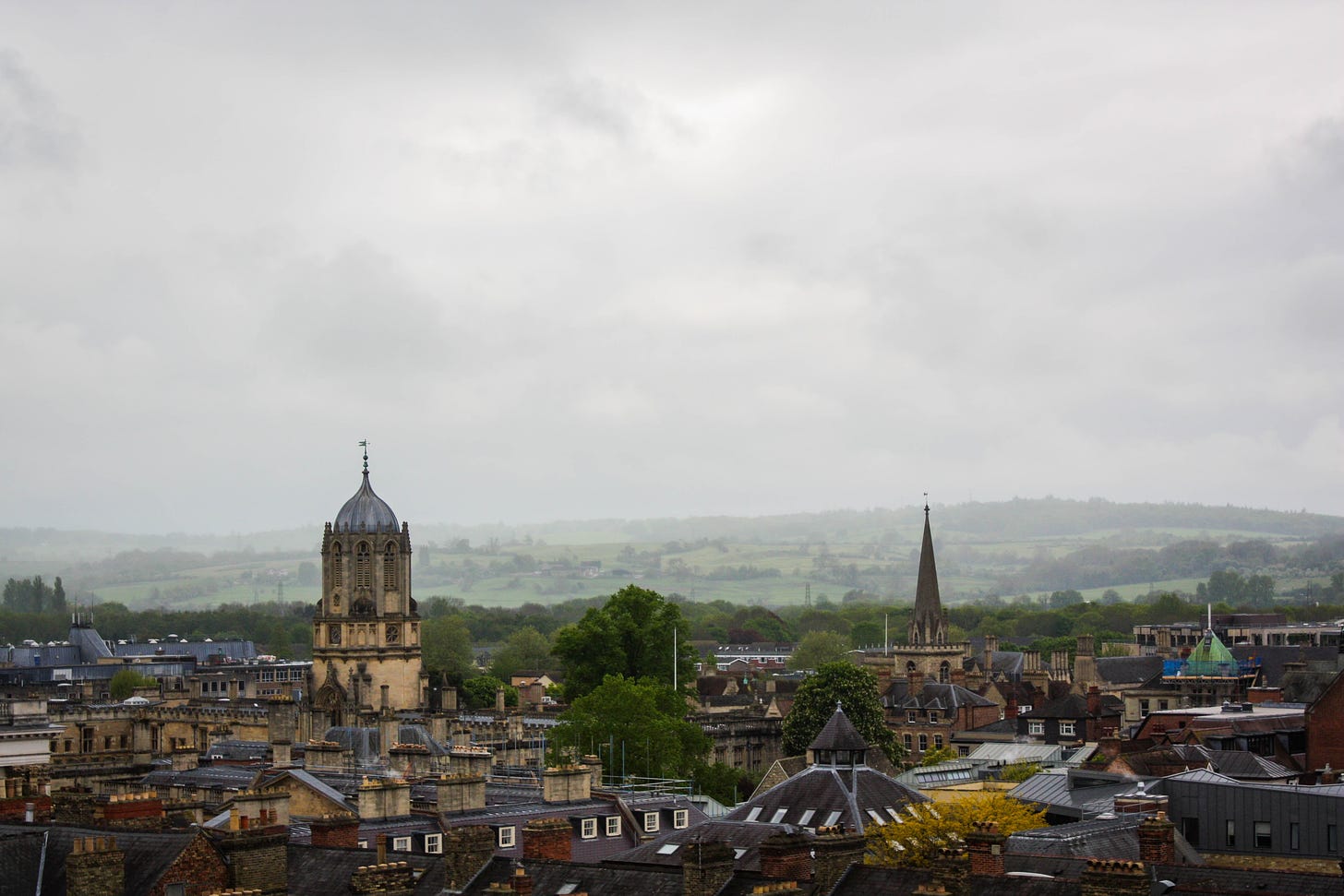Welcome to Poetica, the monthly poetry column of Shadowlands Dispatch! This month, we are pleased to feature an original poem by Christiana Hale, a Bluestocking in Residence for the Society for Women of Letters, followed by an interview. She graduated summa cum laude from New Saint Andrews College with an MA in Theology and Letters in 2017. Her graduate research focused on one of her favorite authors, C. S. Lewis, and his love of medieval cosmology and medieval and Renaissance literature, particularly as seen through Lewis’s Space Trilogy. She graduated with her second graduate degree, an MFA in Creative Writing through New Saint Andrews College, in 2022. She has been teaching at Logos School, a classical Christian school in Moscow, Idaho, as a Secondary Latin and English Teacher since 2019, though she has taught in some capacity on a wide range of topics since 2008. Her book Deeper Heaven: A Reader’s Guide to C. S. Lewis’s Ransom Trilogy, the culmination of years of research, was released in January 2021. She is currently working on the final draft of a middle-grade novel as well as research for another nonfiction project on Lewis’s book Till We Have Faces. She is also an adjunct professor of writing and literature at New Saint Andrews College.
Christiana grew up in North Idaho and has lived in Moscow, Idaho, for the last eleven years. She lives in a cheery house with her two sisters and enjoys walking downtown, haunting the local coffee shop, hiking with friends, and eating Sunday dinners with the rest of her family.
We hope you enjoy her reflections on the magical city of Oxford!
Oxford Spinning
By Christiana Hale
Bursting clouds of brightest yellow,
Froth between hedgerows,
Streaked with grey and green.
England’s countryside spins past
In a watery window.
We see the spires first.
Piercing the palms of the sky,
Pin-sharp, like the point
Of a spinning top above the trees
That bend their knees on cobblestone streets.
The train spins to a stop
And we jump off,
Minding the gap, eyes catch on spires.
Stones like fossilized bubbles bulge
Under our feet. Suitcases bounce and rattle.
A bright green door, framed by brick,
Upper Fisher Row, this small curving street,
And a narrow flat by the Isis spin us into
An embrace, a greeting to weary travelers
From the city frozen in time.
Morning drunk on our doorstep.
Welcome to the University that spins students
Into pubs where Lewis laughed and
Brilliant minds crafted unseen worlds.
The drunk vomits on the cobblestones.
We walk old, spidery paths.
Paths like nets for poets
Whose minds spun words into more nets,
Nets to catch Oxford spires, mist and shadow,
Isis gleaming, bells echoing.
The streets also spin a web,
Curving and narrow and lovely.
The web has snared writers, preachers, kings.
Those who make marks.
Those who don’t.
Oxford spins them all.
Once, twice, three times,
Before removing the blindfold,
Letting go,
Sending them out into the spinning world.
Shadowlands Dispatch Interview
Shadowlands Dispatch: Tell us a bit about your background: your education, what you teach, and what you’ve written in the past.
Christiana Hale: I grew up in North Idaho, just a couple hours north of where I live now. I was
homeschooled K-12 and my childhood memories consist of equal parts running around outside (in all of Idaho’s many seasons!) and reading massive numbers of books. Library runs were every Wednesday, and my sister and I always wished the check-out limit was higher.
I took a four-year gap after high school where I worked and saved in order to attend New Saint Andrews College. I graduated with my BA in Liberal Arts and Culture in 2015 and with a Masters of Arts in Theology and Letters in 2017. It was for that program that I wrote the rough draft of what would become my first book, Deeper Heaven: A Reader’s Guide to C. S. Lewis’s Ransom Trilogy. I graduated with a second master’s degree, an MFA in Creative Writing, in 2022.
At the same time, I just completed my fifth year teaching full time at a classical Christian school here in town. I primarily teach Latin and have just accepted the position of Latin Department Head for the upcoming school year. I also teach British literature (my first love!) to seniors. It’s a busy life, but I am incredibly blessed to be able to do so many things that I love to do.
SD: Tell us about your development as a poet — what were your pivotal moments of development and how did they shape you? What are your abiding themes and concerns as a poet and a writer more broadly?
CH: I started writing pretty much as soon as I could read — primarily short fiction stories — and I always wanted to write novels. That said, I also started writing poetry when I was very young (if you can call it poetry. . . at least it rhymed!). As I grew, I read more and more poetry myself and learned which poets I loved. What particularly draws me to poetry is both how concrete it is and how ephemeral — poetry is difficult to define and yet most people have a sense for what is poetry and what is not. Poetry is 100-proof language, language condensed into a concentrated form, words working on different planes at the same time. And the process of writing it, of laboring over one line and trying to find just the right words in the right order, is one that I enjoy.
My development in writing poetry falls into two categories — instruction and experience. The instruction primarily came from taking many college courses where I was required to read vast amounts of poetry. Both from instructors themselves and from the poets I read, I learned to develop my “ear” for poetry. More about my favorite poets below! In terms of experience, I once had a very wise instructor say that, in order to write, you have to have things to write about. In other words, you must live life before you can write about it. But as you live life, you need to learn to see the world through the eyes of a poet. Primarily, this means noticing everything.
That last point ties into my answer to the next question: my themes and concerns as a poet. I write poetry in order to open a window on the world. To help readers look at things from a different perspective. To hopefully unveil just a little of the everyday magic in everyday things. To help in the project of re-enchanting the modern imagination in any way I can. And to point to Christ in all of it.
SD: To which poets do you turn when you feel in need of inspiration, and who would you recommend to Shadowlands Dispatch readers?
CH: These are just a few of my favorites: Gerard Manley Hopkins, George Herbert, John Donne, Wordsworth, Sir Philip Sidney, and many more.
SD: When did you first visit Oxford, and can you elaborate (in prose this time!) on the experience?
CH: I first visited Oxford in 2017 with my sisters. We’d dreamed of taking a trip overseas together for years and this was the year we made it happen. We only spent a few days in Oxford, as we were trying to cram as much in as we could on this trip, but that was when I fell in love. I went again in 2019 with my whole family, and this time we used Oxford as home-base for most of the trip. We stayed in a lovely little flat by the Isis, just a few streets away from the train station and walked everywhere. That was the trip where I truly felt like I got to know the city — to feel the heartbeat and history of a city that was founded more than half a millennium before our own country.
SD: There’s a real sense of enchantment pervading “Oxford Spinning.” At Shadowlands Dispatch, one of our main themes is the re-enchantment of the world. You paint Oxford as itself a liminal, re-enchanted place. Can you elaborate on how the incarnational experience of the physical location of Oxford combines with the creative work of the Inklings to produce this effect in you and other visitors?
CH: It’s not difficult to find evidence that Oxford has been something magical since its founding. The number of poets and writers who have spun their own verses about Oxford is great. What is it about the place? We are not materialists, and we are not gnostics — there is a sense in which you cannot separate the spirit or genius of a place from its physicality. Oxford is that medieval city on the Isis. It is those towering spires and curving streets with glimpses into glowing green gardens flashing through iron gates tucked around every corner. It is the chiming bells of Great Tom and willows on the river and having a cream tea in the courtyard of a church where Lewis preached “The Weight of Glory.” It is cobbled streets and the covered market and the swirling eddy of people from all over the world, all here to learn or to breathe the air that Tolkien, Lewis, and many others breathed. But it’s also more than all that combined. It’s something far more important. And I think it is connected to the least ostentatious, most easily overlooked spot in Oxford — a simple cross made out of cobblestones in the middle of Broad Street. This cross marks the approximate location of the burning of Latimer and Ridley, two of the Oxford martyrs who were burned at the stake for their Protestant convictions. When the fire was lit, it is said that the seventy-year-old Hugh Latimer turned to Ridley and said, “Be of good comfort, Master Ridley, and play the man; we shall this day light such a candle by God’s grace in England as shall never be put out.” And while our secular culture seems to be trying with all their strength to douse that candle, a spark like that is no easy thing to quench. The motto of Oxford University is yet Dominus Illuminatio Mea (“the Lord is my Light”), a tribute to a heritage of faith that still remains among the ruins, ruins waiting to be rebuilt.
SD: What is your current project?
CH: Thank you for asking! I’ve officially begun the writing process on a project that has been in the research stages for quite a while — a reader’s guide to C. S. Lewis’s Till We Have Faces. I am so excited for this project and can’t wait to share more as it progresses. I’m also looking to break into the fiction world soon. I’ve sent off a manuscript for a novel, and so we’ll see where that adventure takes me!






